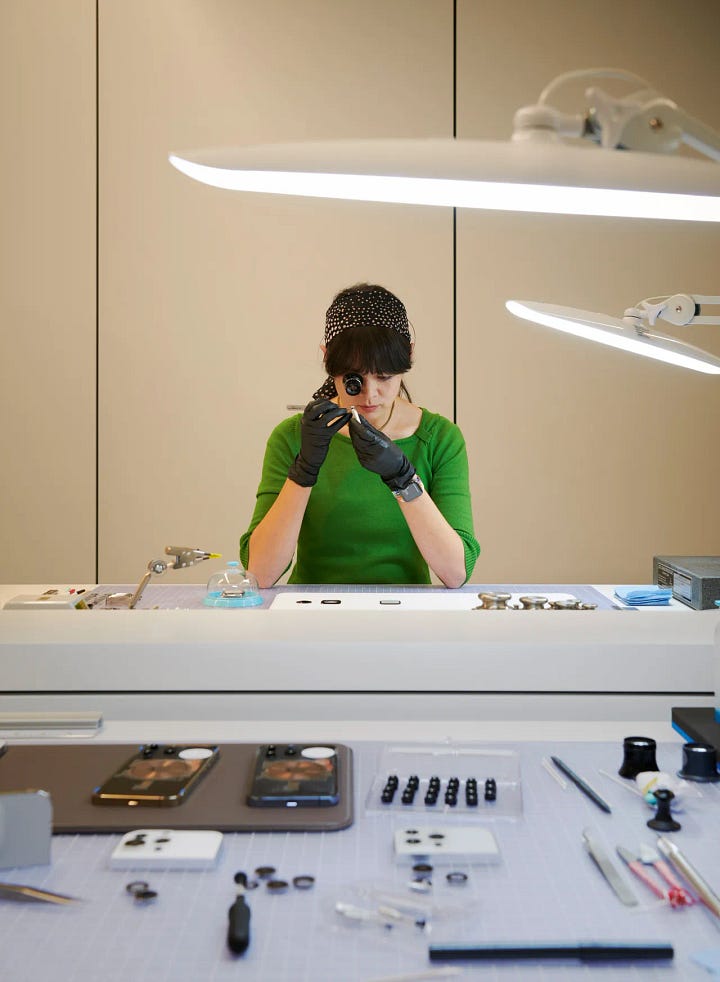Tame your 'founder-superiority-complex' and become a business Jedi
Good morning founder.
In my journey of studying visionaries like Steve Jobs and Elon Musk, I've discovered that their success isn't just about relentless action and effort (though that's crucial too). What's really struck me is their laser focus on the bigger vision and their knack for building a team that's completely aligned with that vision. It's all about bringing the founder's imagination to life.
But here's the kicker – the biggest lesson I've learned is their incredible ability to know when to step back. They seem to have a sixth sense for when to let the experts take the reins. Whether it's allowing an engineer to decide on which of the iPad keyboards to use or trusting an A-player to become CEO of one of your seven companies, knowing when to get out of the way is an art form.




I'll be honest, I often find myself itching to dive into the nitty-gritty of a process or a design. It's tempting, right? But I've realized that bringing in experts and letting them grind is actually higher leverage and leads to better results. Don't get me wrong – keeping tabs on the micro and knowing your startup inside out is crucial. But becoming a spectator in some areas? That's what allows your team to truly flourish.
Here's what I love about being a founder: we've got this incredible power to envision solutions to problems, to see where old issues need modern fixes, and to sense what our dream team should look like. And the best part? We don't need fancy qualifications to get started on an idea. We don't even need to be experts in the solution we want to create. All we need is that vision.
I used to think I needed to be an expert in every field I wanted to enter. But now? I say don't be afraid to dive into a market you know nothing about. In fact, I've found that not being an expert can be a blessing in disguise. It forces you to bring in people who are experts and design powerful systems that become your intellectual property. That's how I believe we build wealth through products and services.
Richard Branson once said something that really resonates with me:
"It's all about finding and hiring people smarter than you. Get them to join your business. And giving them good work. Then getting out of their way. And trusting them. You have to get out of the way so you can focus on the bigger vision. That's important. And here's the main thing....you must make them see their work as a mission."
I'm actually in the middle of reconfiguring one of my companies right now. I'm in a market where I have some edge knowledge, but I'm not an expert. What I do know are the levers to pull. So, my focus is on shaping the team, creating powerful processes, and when things start rolling, I plan to iterate the systems and let the magic happen.
In my experience, founders are more like designers of solutions than manufacturers of the end result. Take Steve Jobs – he designed the vision of the iPhone as a solution to the problem of good mobile tech. Then his team orchestrated the engineering, design, and manufacturing to turn raw materials into a piece of art.
Maybe you're like me and love to contribute, design, build, and get into the details yourself. That's awesome! But I've learned it's important to clarify your goals. Are you aiming to build a complex organism like SpaceX? Or are you looking to earn a living doing what you love? There's a world of difference between the two. Make up your mind and get ready to rock.
Here's a thought experiment that really drives the point home for me: Imagine what Apple would be like – or if it would even exist – today if Steve Jobs had decided he wanted to become a full-time typography expert or designer. The world would be a completely different place, wouldn't it?
What I've come to believe is that as founders, we can design a vision of our grandest desires, of the solutions we want to build into the world. But, to make that vision real, we've got to create the team, we've got to get out of the way, we've got to bring in the experts, and listen to feedback, ideas, and suggestions we might not like, but will ultimately make the overall vision stronger.
For me, getting out of the way is about letting go of the "I can do this better myself" mindset. It's about controlling our ego and our natural "founder-superiority-complex," and realizing we're just humans with brilliant ideas and a fire in our bellies to take action.
So here's what works for me: Build a solid vision, create a team of experts, build awesome systems, iterate, and then... get out of the way.
Tame Your Founder-Superiority-Complex
Key Takeaways:
Focus on the bigger vision and build a team aligned with it
Know when to step back and let experts take the lead
Don't be afraid to enter markets where you're not an expert
Build systems and intellectual property by bringing in experts
Clarify your goals: complex organization or doing what you love?
Design the vision, create the team, then get out of the way
Control your ego and "founder-superiority-complex"
I hope you've found this post helpful.
Follow me X @alfviktr, my new company, and find more on posts on creativefounder.blog




